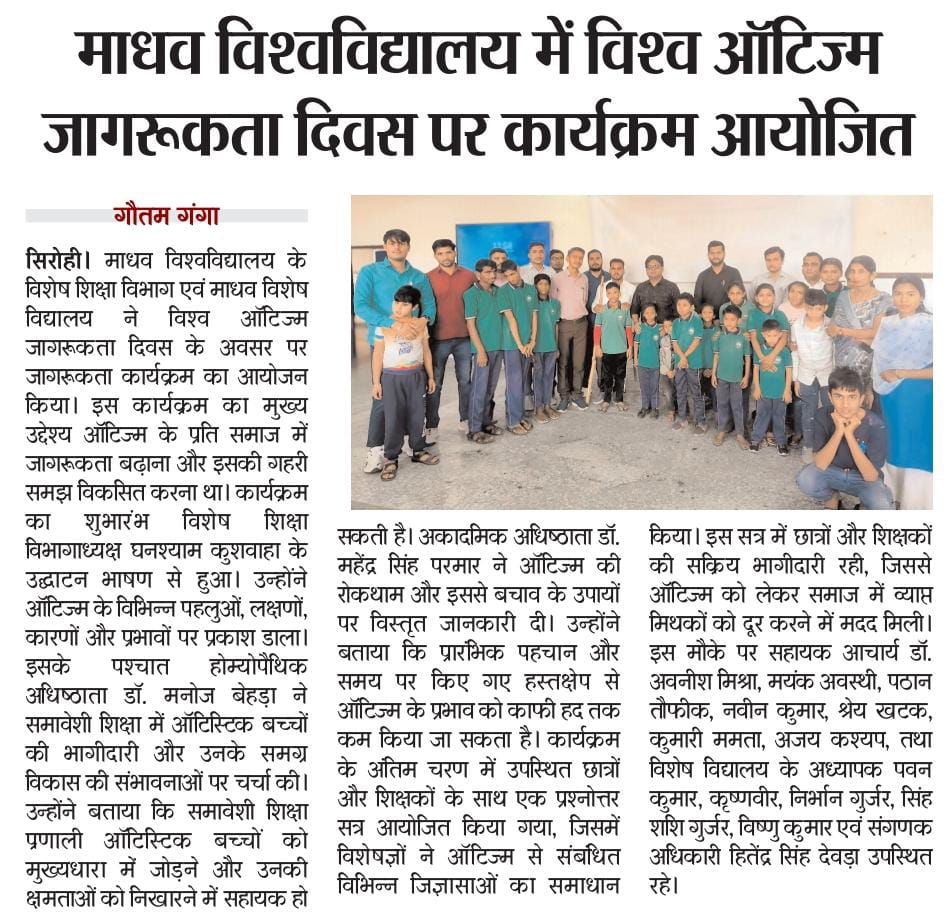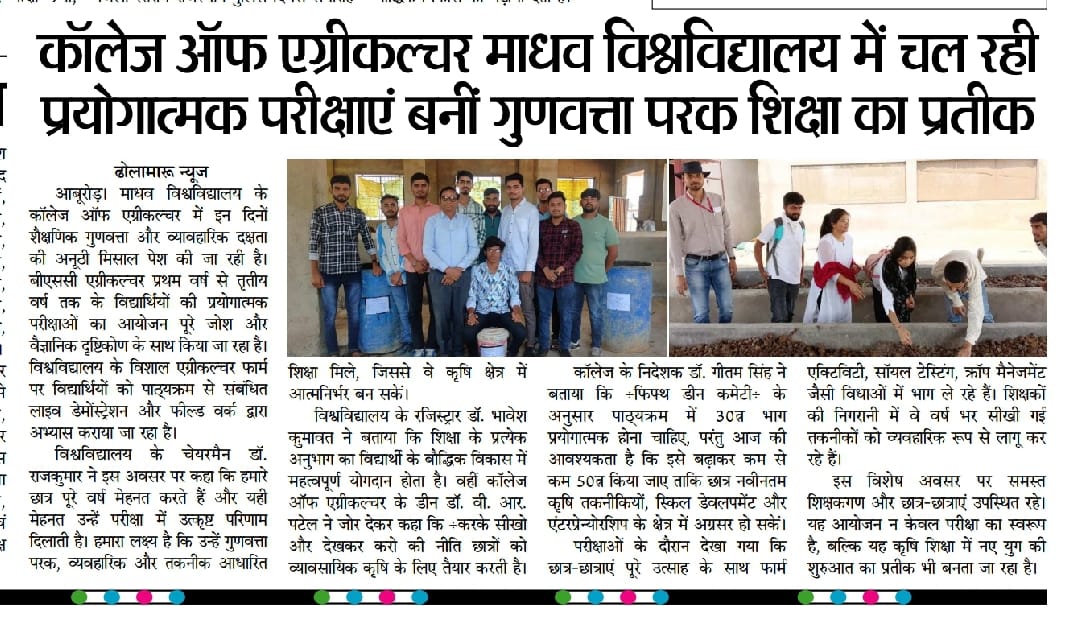
On February 13, 2024, a significant milestone was reached in Indian education with the unveiling of AAPAR ID (Automatic Permanent Academic Account Register) under the joint aegis of the Ministry of Education and the Ministry of Skill Development and Entrepreneurship. This event, held during the National Conference on “One Nation One Student ID Card” in New Delhi, marks a pivotal moment in streamlining and enhancing the educational experience for students across the country.
Dr. Amarjeet Kumar, representing Madhav University, attended this landmark event.
AAPAR ID provides each student with a unique and permanent 12-digit ID, acting as a comprehensive repository for their academic journey. This includes certificates, degrees, and formal or informal credits, even down to granular levels like skill credits, sports participation, and social work contributions, all digitally verified.
This initiative aligns perfectly with the National Education Policy (NEP) and the National Credit and Qualification Framework (NCQF), aiming to revolutionize education by:
- Streamlining Academic Records: Consolidating a student’s academic history into a single, accessible platform.
- Enhancing Credit System: Exploring strategies to advance credit-based learning across all institutions, fostering stronger industry collaboration.
- Improving Employability: Emphasizing the crucial link between academic credits and job profiles to enhance student employability.
Implications for School Education:
- Digitalization of Records: Facilitating mandatory account openings for university and college students in the Academic Bank of Credit (ABC). Plans are underway to extend this to school students through AAPAR ID.
- Improved Monitoring: Enabling effective monitoring of student progress and facilitating the delivery of government schemes and scholarships.
- Streamlining School Transfers: Eliminating the need for school leaving certificates by allowing for easy verification of student data through digital means.
- Addressing Drop-out Rates: Supporting government efforts to reduce school dropout rates and monitor the effectiveness of result-based education.
- Enhanced Data Analysis: Leveraging data from the National Digital Education Architecture (NDERA) and Vidya Samiksha Kendras (VSK) to analyze educational trends and improve overall system performance using big data analytics and AI.
Implications for Higher Education:
- Skill Development & Human Resource Planning: The unique 12-digit ID will create a comprehensive database of a student’s higher education, technical skills, and knowledge. This will enable better planning for skill-based human resource requirements and targeted skill development initiatives.
- Microcredentials and Skill-Based Learning: AAPAR ID will facilitate the integration of microcredentials into academic degrees, bridging the gap between individual courses and full degrees. This aligns with the UGC’s emphasis on including microcredentials in academic qualifications.
- Facilitating Student Mobility: The ABC system will allow students to transfer credits between institutions and continue their education seamlessly, even while changing their place of residence. This will also increase competition among educational institutions, ultimately benefiting students.
- Addressing Fake Degrees: Linking ABC and AAPAR ID with Aadhaar and DigiLocker will enable easier verification of degrees and help combat the issue of fake degrees.
Benefits for Students and Institutions:
- Transparency and Accountability: AAPAR ID will promote transparency in school and higher education, enabling real-time monitoring of scholarships, project implementation, and overall educational quality.
- Improved Decision-Making: Digitization of educational data will facilitate better decision-making by enabling the identification and analysis of problems and areas for improvement.
- Skill-Based Employment: AAPAR ID will serve as a platform for authenticating and analyzing skill-based knowledge, connecting individuals with employment opportunities based on their skills.
- Enhanced Student Support: The centralized help desk for grievance redressal will provide a mechanism for stakeholders to address concerns and seek assistance.
AAPAR ID holds immense potential to transform the Indian education landscape. While challenges and implementation details still need to be addressed, this initiative represents a significant step towards creating a more equitable, efficient, and student-centric education system in India.








